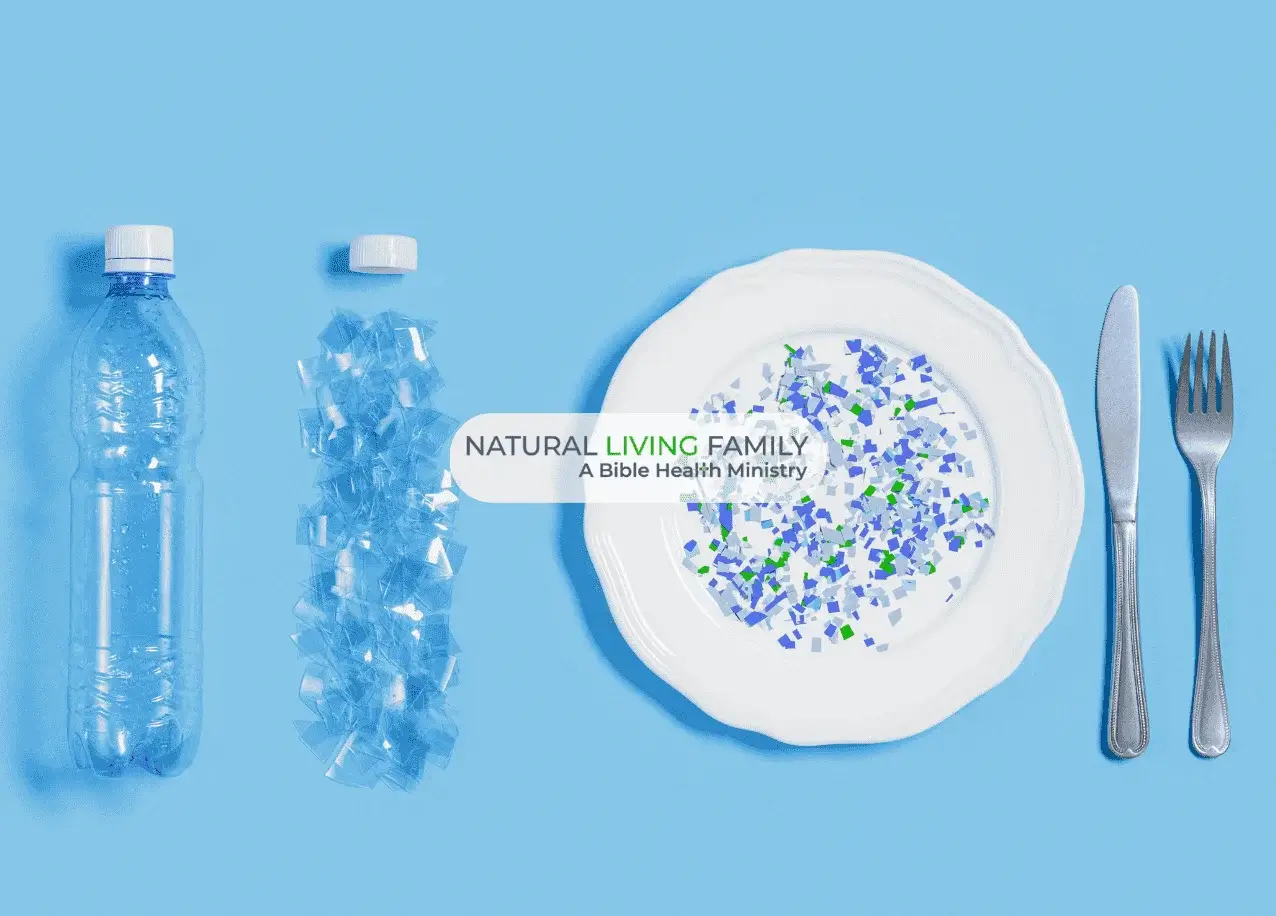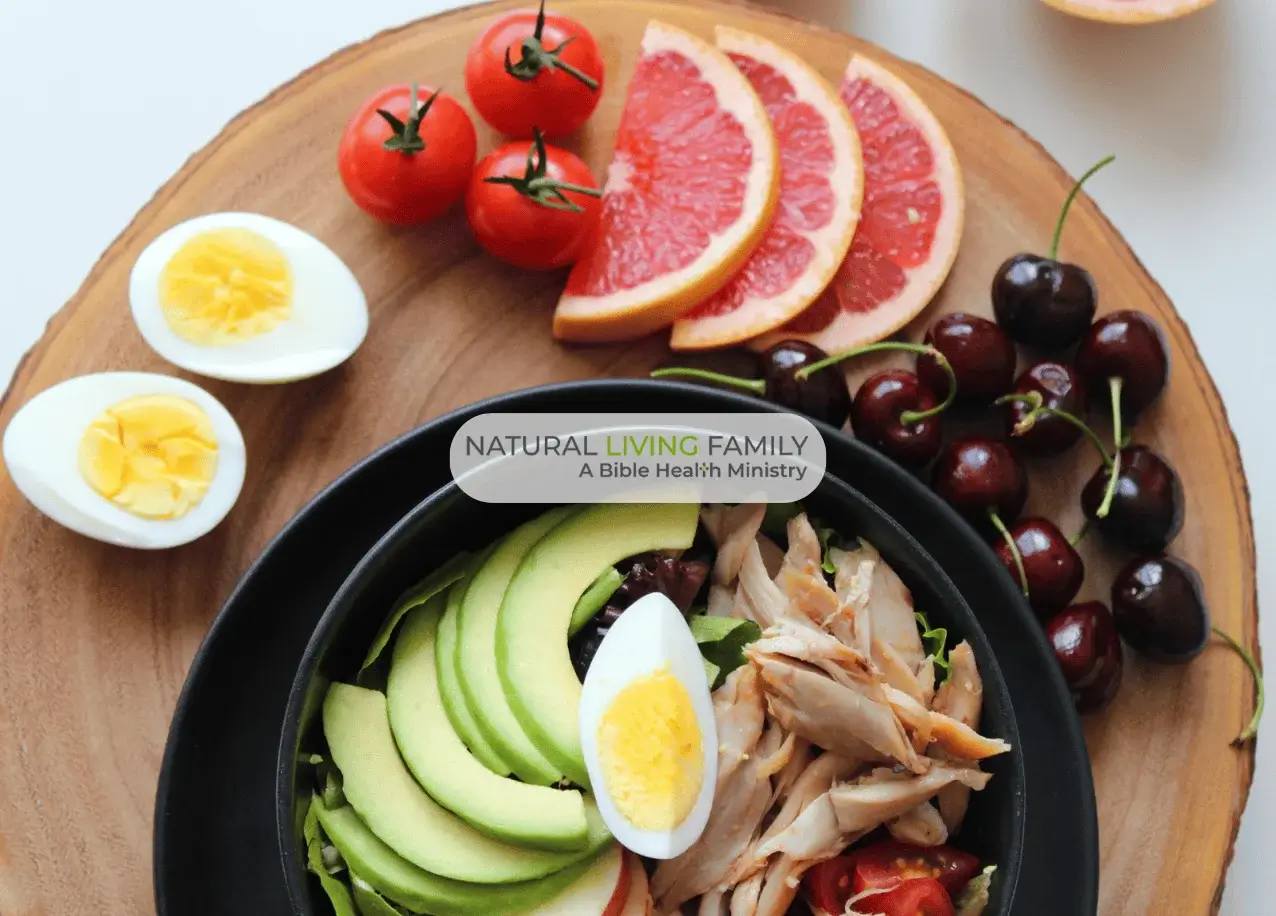A Guest Post by: Dr. David Jockers – What Does the Bible Say About Seafood & Why Should We Listen
People always ask me about the safety or dangers involving eating shellfish. My parents raised me following many Jewish traditions and so I personally do not eat shellfish. Our intention was to live as Jesus had lived. I maintained this nutritional law growing up because it is what I was told.
Today, however, I have researched the Biblical practices and nutrition and toxicity regarding eating shellfish. It has been my decision to avoid eating shellfish. Many spiritual leaders today eat pork and shellfish but I tend to believe that these foods are hindering their optimal potential for mental, emotional, and spiritual health.
Table of Contents
Spiritual Health & the Food We Eat
To be clear, I do not believe that our spiritual salvation is dependent on the food we eat. I do believe it affects our cognitive thought, energy, and risk of illness. Our energy coupled with our mental and physical health influence our spiritual health and many individuals would agree that our spiritual walk is evident in how we serve and love people.
We face challenges and taller hurdles to serve and love people when we are affected by fatigue, poor mental clarity, and/or if we suffer from a chronic disease. In this regard, it is a critical decision that people should consider a dietary lifestyle focused on high-quality foods to intentionally prosper us in our spiritual walk.
Why I Avoid Pork
It is my health philosophy that I teach and live by, that we should honor God with our bodies, mind, and spirit and only consume foods with maximum nutrients and limited toxins. Therefore it is easy for me to reason why pork consumption is detrimental to my personal values. Pork is low in critical nutrients and is extremely high in environmental contaminants and parasites, especially when compared to grass-fed beef, bison, venison, lamb, and other comparable meats.
You can read this article here to learn why I do not endorse the consumption of pork and to learn the healthiest ways to prepare pork if you decide you want to continue consuming it.
Why Avoid Eating Shellfish?
Unlike pork, eating shellfish may not seem as clear-cut in its nutritional value. Some types of shellfish like oysters and krill actually contain a high amount of nutrients which can be hard to obtain from other food sources.
For instance, shellfish is high in the critical nutrient zinc. This essential mineral is vital to human health and is a common deficiency in many of our diets. Very important for immune function, the highest concentration of zinc is found in oysters and can further benefit skin and fertility health. In general, eating shellfish and seafood are good sources of trace mineral selenium which stimulates both immune and thyroid function (1).
The long-chain omega-3 fatty acids EPA and DHA are also found high in concentration in krill and shrimp. These omega-3 fats are critical for supporting brain health, reducing inflammation, and improving neurological and cardiovascular function (2). Shrimp and krill eat red algae also making them an excellent source of the powerful antioxidant astaxanthin. Astaxanthin is what gives these shellfish their natural pink color (3).
From this perspective, it seems natural that eating shellfish would be a great source of nutritional compounds. Unfortunately, modern society overuses fossil fuels containing heavy metals such as methylmercury which ultimately ends up in our waterways. As a consequence, seafood is highly contaminated with heavy metals. Although the rich sources of selenium and zinc contained in the food can help remove heavy metals from our bodies, do the nutritional benefits truly outweigh the environmental toxicity risks?
What Does the Bible Say About Seafood?
The following command includes fish like sharks, rays, catfish, eels, paddlefish, hagfish, and lampreys which do not have scales. It also includes crustaceans and mollusks.
“These you may eat, of all that are in the waters. Everything in the waters that has fins and scales, whether in the seas or in the rivers, you may eat. But anything in the seas or the rivers that has not fins and scales, of the swarming creatures in the waters and of the living creatures that are in the waters, is detestable to you.
You shall regard them as detestable; you shall not eat any of their flesh, and you shall detest their carcasses. Everything in the waters that has not fins and scales is detestable to you.”
Detestable is a strong word choice used to convey “deserving intense dislike.” Why does God want us to find the creatures He created detestable? We must look further at the nature of the animals to understand this concept.
What is the Nature of Shellfish?
Shellfish are scavengers that by nature will have a high toxic load. Scavengers are nature’s cleanup crew designed to break down dead and decaying matter on land, lakes, rivers, and the ocean.
The nocturnal scavengers, lobsters, roam the bottom floor of the ocean consuming dead animals and debris. They are known to bury dead fish so that they may consume the rotting flesh later and are similar to the vultures in the sky. Crabs sweep the ocean floor consuming anything. They are like trash cans and even eat other dead crabs.
Shrimp are bottom dwellers that eat all sorts of dead animal remains along the ocean’s bottom. Actually, there is possibly a higher level of cannibalism in shrimp as evidenced by the parasitic load and types of parasites they contain.
The tiny parasite, Pleistophora mulleri, was found in a 2015 study to increase the cannibalistic performance of shrimp and also found infected shrimp to have an unquenchable appetite (4). Researchers observed the shrimp voraciously rip through their sibling shrimp in a significantly shorter period of time than a non-infected shrimp would typically have taken to eat.
Unfortunately, there is no process used to determine which shrimp are infected by parasites and which are not. When shrimp catchers pull up their netted catch they are unaware of infection as they all appear and possibly taste the same.
Eating Shellfish & Allergies
Shellfish trigger allergies which send more people to the hospital every year more so than any other food allergen. Most individuals with shellfish allergies are affected by the crustacean group. An estimated 6 million Americans alone or 1 in every 50 people have a shellfish allergy (5).
Compounds can be different in fish and shellfish and produce different allergen responses. This is why people who are allergic to one or the other may not necessarily have to avoid both shellfish and fish groups.
Researchers have discovered that the allergy trigger is a protein called tropomyosin. This protein is found in the muscles of all animals. They also found that 2 regions called epitopes attach the IgE allergy antibody to the shellfish tropomyosin. These compounds have the greatest similarities within species (6).
Shrimp, lobster, and crab which make up the crustacean group trigger the highest number of allergic responses. These individuals can eat mollusks like scallops, mussels, and clams because the tropomyosin epitopes are not identical.
What About Mollusks?
Mollusks are considered filter feeders and are found in streams, lakes, and coastal areas. These creatures don’t hunt their prey but instead remain stationary to pump water over their gills trapping salt, silt, bacteria, viruses, plant debris, and parasites for consumption. These water purifiers are the ultimate filter feeders.
The FDA alarms that mussels, raw oysters, and clams contribute to 85% of seafood-related sickness (7). Mollusks carry salmonella, E Coli, cholera, hepatitis A, and the Norwalk virus. Even though we should never eat these foods raw, the cooking process does not guarantee complete elimination of the toxins either.
Individuals with low stomach acid levels or people with weakened immune systems should avoid mollusk consumption as the risk for infection is significantly high. As waterways continue to become flooded with toxins from chemical pollutants in our society, mollusks will continue to take on a higher toxic load.
Shellfish spoils quickly and easily, making them the perfect food source for pathogenic bacteria. Even though generally cooked, shellfish is difficult to properly prepare. Millions of people are exposed to undercooked or spoiled crab, shrimp, oysters, and other shellfish alike. These food sources pose a tremendous threat of bacteria, viruses, and active parasites.
Bioaccumulation in Shellfish
Compared to the Biblical days the world around us is much more contaminated. Our oceans, rivers, lakes, and waterways have a higher toxicity level in the 21st century than ever before. Methylmercury is certainly an issue because it originates from burning fossil fuels. It is taken up into the Jet stream and precipitated down mostly into the oceans in the form of rain.
Bioaccumulation is a major issue for such contaminants as mercury and lead in mollusks. Both fish and crustaceans are able to excrete some of these contaminants and may not have as high a toxic load. Crustaceans have the highest risk of carrying parasites and accumulating xenoestrogen.
Xenoestrogenic chemicals are found in industry products like plastics as well as pesticides and dioxins. These contaminants are often found at the bottom level of the waterways where shellfish gather. Most marketed shrimp are sourced from areas where there may be no restrictions on PCB, dioxin and the presence of other contaminants.
A Health Message from God About Shellfish in the Bible?
In early Biblical days, infectious disease was the greatest threat to shortened lifespans. Diseases could quickly demolish families, tribes, and cities easily in the pre-medical era. Health principles are contained in the book of Numbers, Leviticus, and Deuteronomy to help us minimize infectious disease.
Regarding shellfish in the Bible, I believe God called shellfish detestable because He wants us to understand the health threat they pose in our lives given their bacterial, parasitic, and viral load. There was no refrigeration in the Biblical days but there were also fewer environmental dangers. The major risk would have been infectious microorganisms.
The environment has drastically changed today. Our waterways and therefore shellfish are significant sources of industrial toxins. Although we can prepare foods better with cooking methods we cannot rid them of toxins.
The narrative of the Hebrew people found in the Old Testament provides a description of a culture seeking to not only survive but thrive in a hostile world in the promised land of Israel. It is then logical to understand that God would provide nutritional advice on practices that may harm tribal health.
Although I have personally never consumed pork, I have in fact tried mussels, shrimp, and octopus. Although the taste is decent, these foods are nothing that my body desires or requires.
About the Author
David Jockers, DNM, DC, MS is a doctor of natural medicine and specializes in functional nutrition and natural health strategies. He is the founder of DrJockers.com, a website designed to empower people with science-based solutions to improve their health.
References:
- https://pubmed.ncbi.nlm.nih.gov/25468190/
- https://www.ncbi.nlm.nih.gov/pmc/articles/PMC4374210/
- https://archimer.ifremer.fr/doc/1989/acte-1466.pdf
- https://royalsocietypublishing.org/doi/full/10.1098/rsos.140369
- https://www.news-medical.net/news/2004/04/13/467.aspx
- https://www.nytimes.com/1993/12/28/health/studies-unmask-protein-culprit-behind-allergy-to-shrimp.html
- https://www.ncbi.nlm.nih.gov/pmc/articles/PMC3126371/











